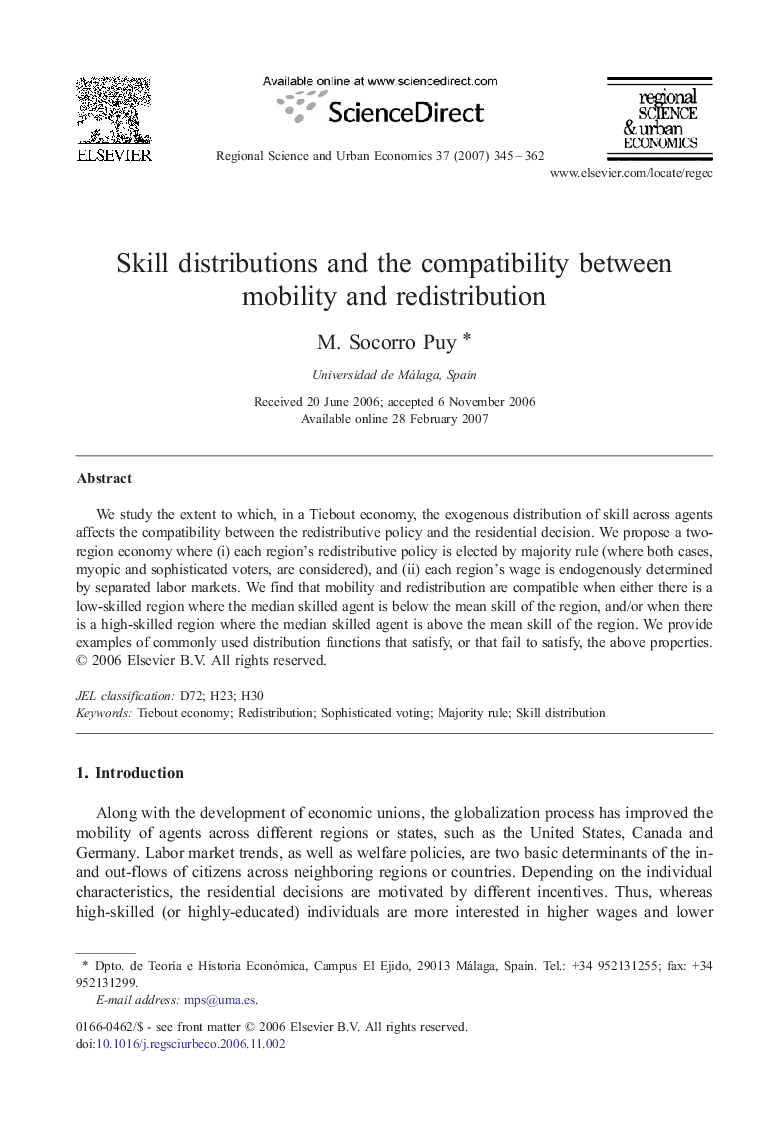| Article ID | Journal | Published Year | Pages | File Type |
|---|---|---|---|---|
| 983980 | Regional Science and Urban Economics | 2007 | 18 Pages |
Abstract
We study the extent to which, in a Tiebout economy, the exogenous distribution of skill across agents affects the compatibility between the redistributive policy and the residential decision. We propose a two-region economy where (i) each region's redistributive policy is elected by majority rule (where both cases, myopic and sophisticated voters, are considered), and (ii) each region's wage is endogenously determined by separated labor markets. We find that mobility and redistribution are compatible when either there is a low-skilled region where the median skilled agent is below the mean skill of the region, and/or when there is a high-skilled region where the median skilled agent is above the mean skill of the region. We provide examples of commonly used distribution functions that satisfy, or that fail to satisfy, the above properties.
Related Topics
Social Sciences and Humanities
Economics, Econometrics and Finance
Economics and Econometrics
Authors
M. Socorro Puy,
